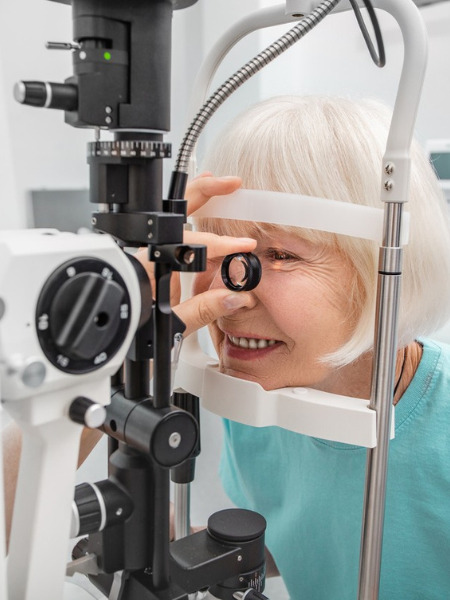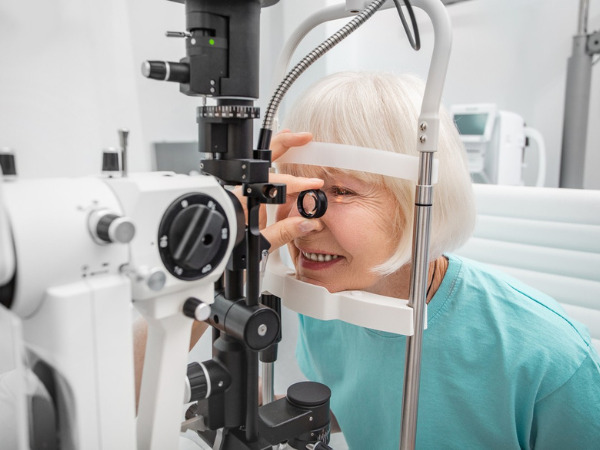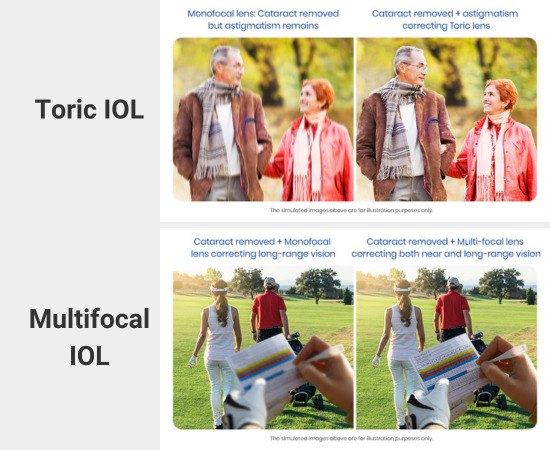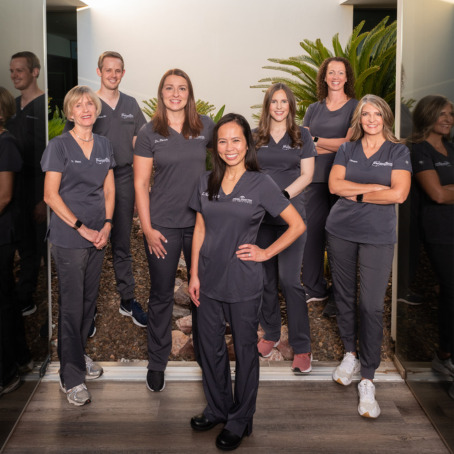Search
Search
We know you’re probably asking, “what’s next” so we put together a few things to help you feel more confident, comfortable, and prepared. This page will be your guide to preparing for your cataract evaluation at Swagel Wootton Eye Institute. We encourage you to read this page carefully, using the links below to quickly navigate to find answers to your questions, and watch our Cataract Surgery video series so you will be well informed for you upcoming appointment.
During the medical eye evaluation, you will be dilated to allow for advanced testing. Dilated eye exams typically last 2 hours and can cause sensitivity to light for an average of 6 hours following dilation. We suggest you bring sunglasses for your drive home.
We ask all patients coming for a cataract evaluation to be out of their contacts for at least 7 days prior to your appointment. This will allow for more accurate testing and view of your complete eye health.
If you wear hard contacts, be out of them for 2 weeks prior to your consultation.



An intraocular lens (IOL) is an artificial lens that is implanted into the eye during cataract surgery. The intraocular lens acts as a replacement for the eye’s natural lens (or cloudy lens) which is removed during the surgery. At Swagel Wootton Eye Institute, we are proud to offer the latest innovations in cataract eye surgery and advanced IOLs. The team at Swagel Wootton will help you understand your lens options and choose the best intraocular lenses for your lifestyle during your consultation.


Because the cost of cataract surgery depends on your insurance plan, copays, and deductibles, it’s difficult to provide an accurate range. Cataract surgery is typically covered by most health insurance plans, including Medicare, as it is considered a medically necessary procedure to restore vision. Insurance coverage generally includes:
There are out-of-pocket costs associated with advanced intraocular lenses (IOLs) or laser-assisted cataract surgery for patients who are looking to get out of glasses or contacts or correct an astigmatism. These options are not typically covered by insurance. At Swagel Wootton out-of-pocket upgrade costs can range from $2,500/eye to $5,100/eye. Swagel Wootton’s team of highly-skilled surgeons uses the latest technology to ensure your safety, comfort, and results.
The team at Swagel Wootton is committed to helping everyone achieve the vision they deserve. If your insurance doesn’t cover the full balance of your procedure, we’ll work with you to craft a payment plan that fits your monthly budget. To do that, we offer financing options through CareCredit and Alphaeon Credit (subject to credit approval) and accept HSAs and FSAs. You can learn more about our payment plans and options here. During your consultation, our team of surgical counselors will help you figure out what your insurance policy covers, what payment options are available, and how to make cataract surgery as affordable as possible.
Once you’ve scheduled surgery it’s time to start planning all the things you’ll be able to see and do when you’ve said goodbye to your cataracts and blurry vision!
Depending on your surgical choice, you’ll have pre-surgery instructions and eye drop schedules to follow. Make sure you read all of your paperwork ahead of time and follow those drop schedules, they’re crucial for a successful surgery day.

Depending on which type of cataract surgery you’ve chosen, your recovery will be unique but typically most patients feel back to normal after 24 hours, with full recovery typically taking about 4 weeks. Cataract surgery is done one eye at a time, about a week in between the first and second eye.
During the days and weeks following the operation, patients’ vision becomes gradually clearer and more focused as the eye heals.
Keep in mind that recovery is different for every patient and your doctor will share more detailed information about recovery times for each vision correction option.
